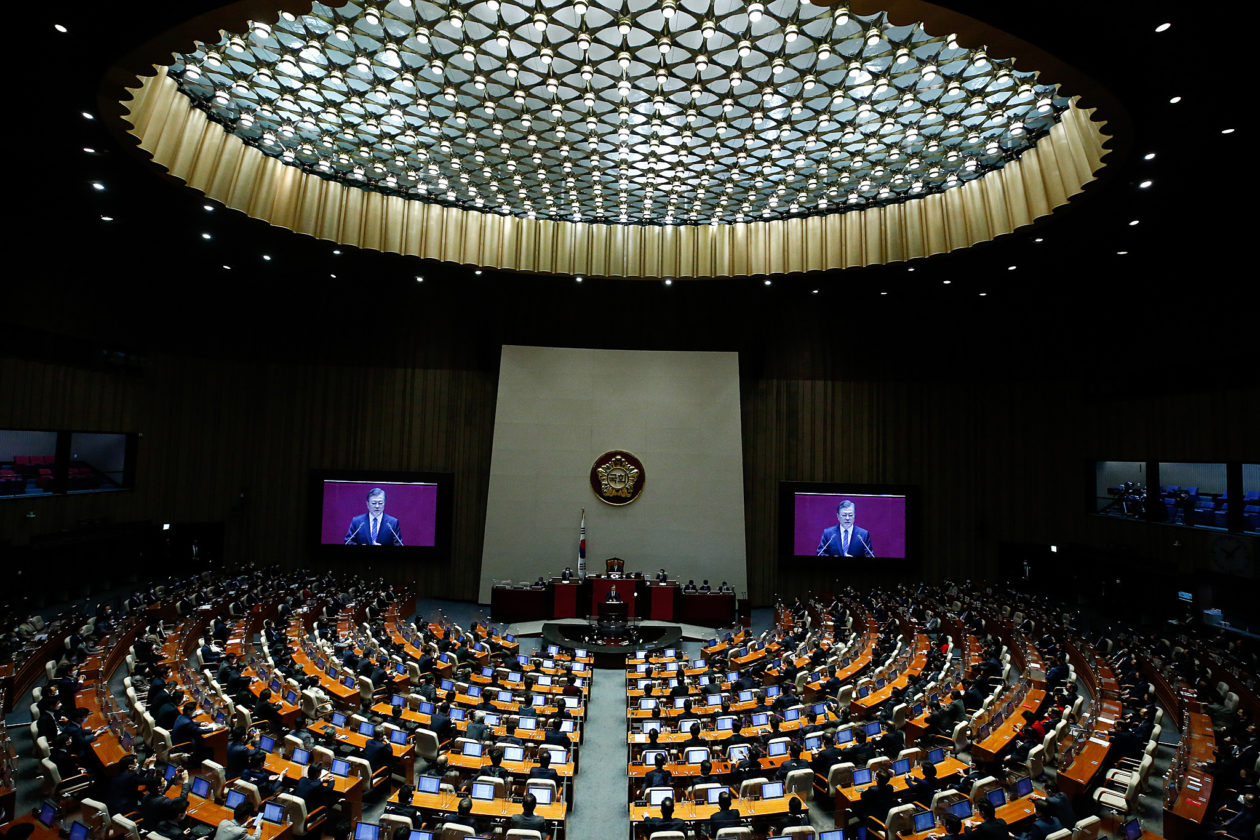A bill to delay a pending tax on virtual assets failed to pass the National Assembly’s standing committee at a meeting yesterday, while the topic remains a huge factor in the upcoming presidential election.
Fast facts
- The South Korean National Assembly’s tax subcommittee under its Strategy and Finance Committee had discussed an amendment to the income tax law, including the postponement of a virtual asset income tax, but failed to reach an agreement, as government officials present at the meeting remained in opposition. The subcommittee will discuss the matter again on Nov. 26.
- Cha Dong-joon, professor at Kyungbok University’s tax accounting department, told Forkast.News there is a high chance the bill will be passed in the upcoming discussion on Nov. 26. “Legislative matters are solely handled by the legislature. So I don’t think even if the Ministry of Economy and Finance opposes [the delay], it will be able to stop the bill from being passed,” Cha said.
- South Korea plans to levy a 20% tax on virtual asset gains over the amount of 2.5 million Korean won (about US$2,100) starting on Jan. 1, 2022. It sparked controversy among investors especially in their 20s and 30s, who claimed the tax policy is constructed unfairly when compared to stock gains tax. Stock income will be taxed 20% from 50 million won, which is around US$42,000, and is scheduled to start on Jan. 1, 2023.
- Other investors and crypto experts point out that there are still loopholes to taxing cryptocurrency gains, such as the difficulty in tracking down peer-to-peer crypto transactions, or trading of unlisted cryptocurrencies. They assert that rushed taxation will lead more crypto investors to evade taxes in such measures.
- Both the ruling Democratic Party and the conservative People Power Party agree that the crypto tax needs to be postponed, and several lawmakers have spearheaded bills for the matter. Local media interpreted such a movement as a tactic to win over votes of the crypto-savvy citizens in their 20s and 30s, who are now considered the critical age group to secure in the upcoming presidential election in 2022.
- The Democratic Party’s presidential candidate Lee Jae-myung has officially endorsed the bill delaying the tax plan in his campaign, while Yoon Seok-youl, running for the conservative party, also mentioned in a debate that he disagrees with taxation under the current circumstance.





